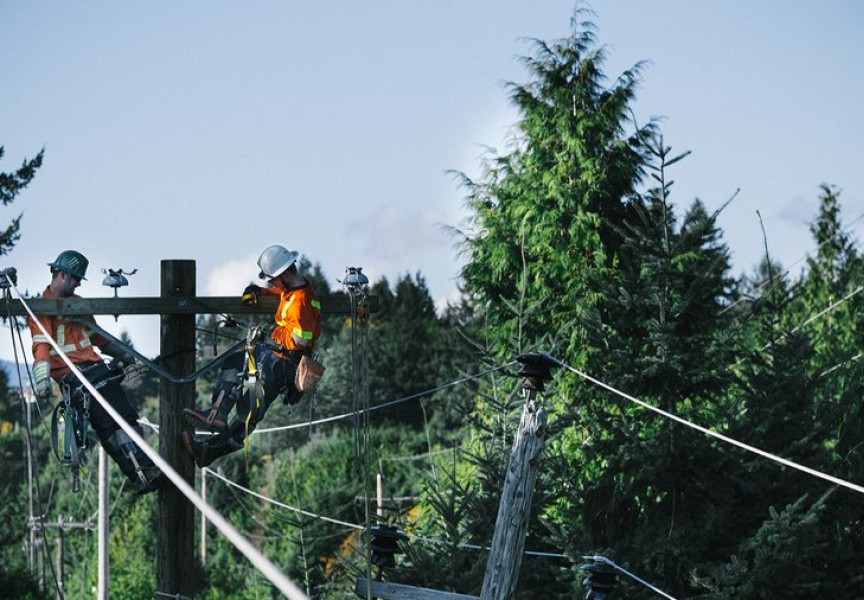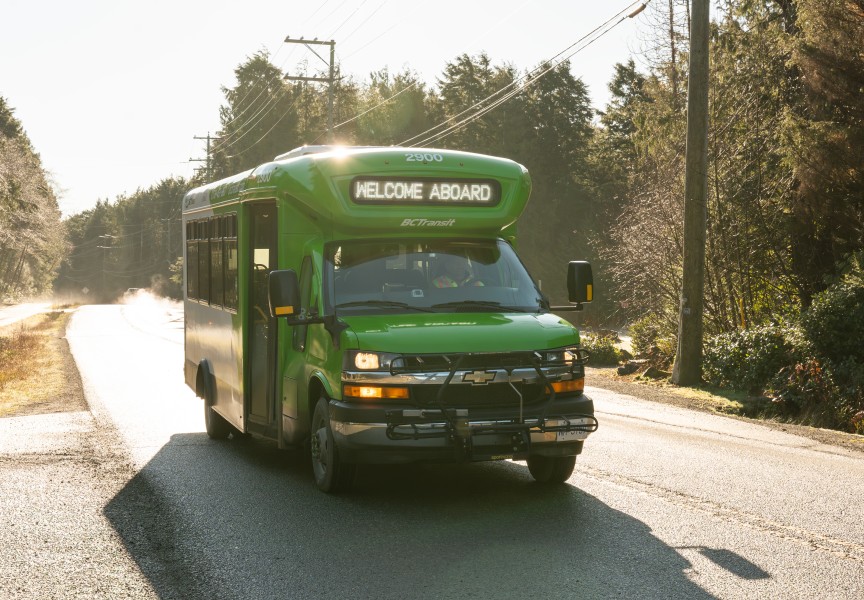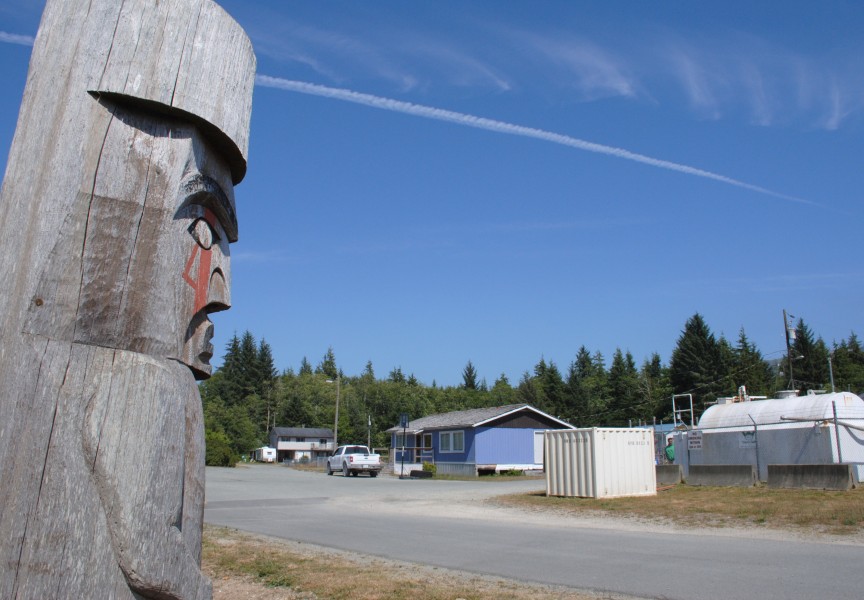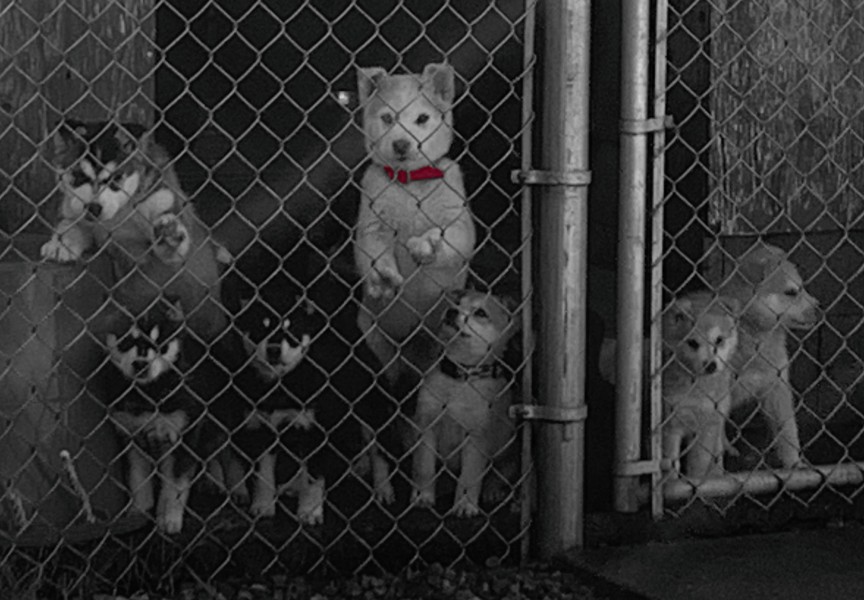Pet owners living in remote communities have a tough time accessing veterinary care, leading to exploding pet populations. But that could soon change with the launch of a mobile veterinary clinic from Tofino that will go to places like Ahousaht, Ty-Histanis and Toquaht to offer pet care at a substantial discount.
James Rogers, co-founder and executive director of the CARE Network, is excited about the new project that will deliver in-demand services at a discounted rate. The CARE Network is a non-profit animal rescue and education organization that launched in Tofino about 10 years ago.
CARE has worked with communities like Ahousaht over the past decade to help address exploding pet populations, said Rogers. Their volunteers have gone into the community to remove and rehome unwanted or unclaimed pets.
According to Rogers there are many barriers to accessing veterinary services for locals, from the additional travel time, the prohibitive cost of services at private practice clinics to the lack of veterinarians across Canada.
“Wait times to see a veterinarian, even in the city is six to eight weeks,” said Rogers.
At most clinics, it costs more than $600 to neuter a dog. Inadequate access to veterinary care means dogs and cats are not getting spayed or neutered. Rogers says when the dog population is out of control, it leads to health problems for the animals, including starvation, illnesses like the deadly parvo virus and it draws wildlife into the community.
Rogers said Care Network began working with the CAAT (Canadian Animal Assistance Team) to offer spay and neuter clinics in west coast communities starting about 10 years ago. But the pandemic prevented outsiders from coming into the communities, meaning there have been no clinics in over two years.
“One expert says COVID set us back at least ten years,” Rogers told Ha-Shilth-Sa.
The CARE Network shelter is small, designed to hold animals for a few weeks, then they get adopted or go to a bigger shelter. Rogers says all rescues are now at or beyond capacity.
“In 2021 we helped more than 780 animals on the west coast,” he stated.
He went on to say that this situation is taking a toll on resources at shelters, which are largely run by volunteers and supported by donations.
The CARE Network evolved from spay/neuter clinics in partnership with CAAT, but demand is through the roof. Rogers says CAAT is supported by veterinarians that volunteer their services and they are not designed to go to the same community on an ongoing basis.
“That is not sustainable,” said Rogers.
So, CARE Network looked at other alternatives to support communities. That included helping First Nations governments develop animal bylaws.
“Ahousaht has a more progressive set of bylaws in the region,” said Rogers.
The problem is there is no bylaw officer to enforce it.
Now the people are complaining that dogs are roaming free, around the school. Children are in danger of getting hurt if the dogs start fighting.
Prior to the pandemic, CARE Network had planned to bring dog trainers into villages to teach people how to train their pets. They also hoped to assist with a fence program, to help people keep their pets confined to their property. But now there is a lack of human resources.
“But we see more dogs on leashes than we did ten years ago,” said Rogers.
He admits that they can’t get everyone on board to contain their pets.
“Just because ‘Fluffy’ is a nice dog doesn’t meant that ‘Fluffy’ should roam free, the rules should be for everyone because it is a health and safety issue,” said Rogers.
With COVID restrictions lifted, the CARE Network has switched gears and are proud to announce the launch of a mobile veterinary clinic that will address some of the transportation issues.
They’ve purchased a used U-Haul moving van and converted the box into two rooms. The new mobile clinic will be called Mission Pawsible, referring to the seemingly impossible dream to get it done.
The 32-foot van is divided into two rooms, one will be an examination room and surgery space.
Dr. MacKenzie Drake will provide professional veterinary services. Drake is a local woman, having grown up in Ucluelet and starting a cat rescue when she was 16. Rogers said she dreamed of being a veterinarian but the wait to get into a school in Canada was long with far too few seats for veterinary students.
“She had to go to New Zealand and live in her van while she earned her degree,” said Rogers.
Dr. Drake will be working with a veterinary technician, bringing Mission Pawsible into communities and other shelters, offering spay/neuter clinics at a deep discount.
“As long as we can cover our costs, this is a sustainable model,” said Rogers.
Rogers says the First Nation government will pay Mission Pawsible a fee to cover the cost of supplies and services.
“They may offer this service for free or they may charge their members a fee to recoup some of their costs - either way, it’s up to them,” said Rogers.
And it will be well below the cost of what is generally charged at a city clinic.
The CARE Network has paid for the van and the renovations, but is still raising funds for equipment.
“We’re raising $150,000 for specialized equipment,” said Rogers.
They are seeking donations through their social media page. In addition, they are inviting people or organizations to host a ‘Spay-ghetti No-balls’ fundraising dinner where CARE Network volunteers bring the food and presentations.
The CARE Network will host a fundraising dinner with live music in March.
The van is expected to be up and running in April or May and will be open to First Nations from Hot Springs Cove to Macoah, with the First Nation covering the cost.
“We’d be open to other First Nations in the mid-island area – if their government gives us a call we can explore that,” said Rogers.
Donations can be made to the Care Network through their Facebook page or their email at info@carenetwork.ca








